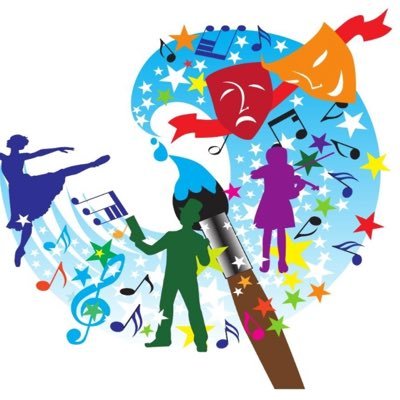The Expressive Arts include art and design, dance, drama and music. Learning in through and about the expressive arts enables children and young people to;
- Recognise and represent feelings and emotions
- Be creative and express themselves in different ways
- Experience enjoyment and contribute to other people’ enjoyment through creative and expressive performance and presentation
- Develop skills specific to the expressive arts and also those which are transferable
- Recognise and value the variety of culture locally, nationally and globally
- Build foundation for excellence in the expressive arts
At St James’ children develop their emotional and aesthetic responses through Expressive Arts. Much of our work in Expressive Arts is delivered via class topics. Where possible we establish links with professional arts companies and cultural organisations to engage and motivate our learners.

Art and Design
Through art and design, children are encouraged to express themselves visually and to appreciate and enjoy their own and the work of other artists. Their imagination is stimulated through various media such as music, poetry and the work of famous artists. All children are encouraged to develop their creative talents and knowledge of the visual elements through participating in activities, which include the use of different materials such as paint, and collage work, fabric, plasticine and clay.
Drama
Children from their earliest years use imaginative play to explore, order and make sense of themselves and the world about them. Drama extends and builds on this natural process and helps to build confidence and self-esteem. To help develop a range of dramatic techniques and skills, children have the opportunity to role-play, improvise, use movement and mime and use sound to express their own and others’ ideas. The opportunity to develop these skills often arises through other curricular areas such as literacy and social studies.
Dance
A variety of dance skills are taught. Pupils also learn Scottish Country Dances.
Music
Our aim in music is to foster a lasting interest in and enjoyment of musical skills. Activities to encourage this may include listening and responding to music, making and inventing their own music by using instruments which are available in the school, and singing modern and traditional songs. Children in the upper school also have the opportunity to join the School Choir. Through inputs from Renfrewshire Council Music Department children can apply to learn musical instruments from a music teacher out with the school.
For further information on the principles and practices of Expressive Arts visit the Education Scotland website.

